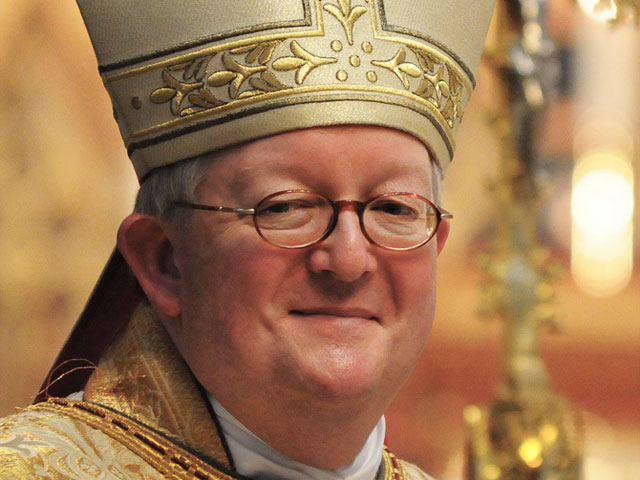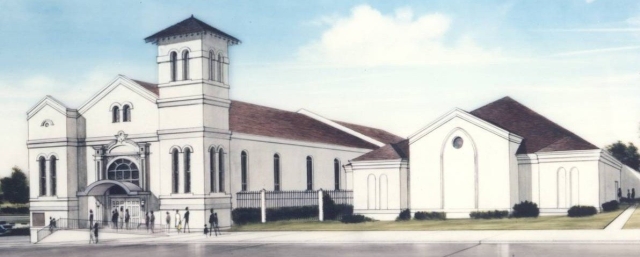An obituary of Father Robert F. Capon in the New York Times? Sounds great. It begins:
Robert F. Capon, an Episcopal priest, author, theologian and food writer best known for “The Supper of the Lamb,” a sui generis book about cooking and metaphysics that has remained in print almost continuously since it was first published in 1969, died on Sept. 5 in Greenport, N.Y. He was 87…
Mr. Capon, who lived for many years on nearby Shelter Island, wrote 27 books from 1965 to 2004, most of them works of theology or New Testament interpretation that gave voice to a passionate, entertaining and sometimes unorthodox view of Christian teachings.
In books like “The Third Peacock: The Goodness of God and the Badness of the World” (1971) and “Between Noon and Three: Romance, Law and the Outrage of Grace” (1996), Mr. Capon (pronounced KAY-pun) dismissed most forms of conspicuous religious piety, construed the Gospels as a radical manifesto for freedom, and for better or worse championed what he called “the astonishing oddness of the world.”
It’s a great beginning, but I fear that the obituary focused on the food writing at the expense of some of these deep theological concepts. In my mind the two were woven more closely together. Take this passage that the Times quoted:
The onion passage became a favorite of readers. Before explicating a lamb recipe, Mr. Capon instructs readers to set the lamb shank aside and first spend some time with an onion — an onion they will cut into pieces for sautéing. “You will note, to begin with, that the onion is a thing, a being, just as you are,” he writes. “Savor that for a moment.”
Noting that “an onion is not a sphere in repose” but “a linear thing, a bloom of vectors thrusting upward from base to tip,” he invites his readers to recognize their little onion “as the paradigm of life that it is — as one member of the vast living, gravity-defying troop that, across the face of the earth, moves light- and air-ward as long as the world lasts.”
But it leaves out the line “One real thing is closer to God than all the diagrams in the world.”
I think this passage Rod Dreher quoted at the time of Capon’s death is worth noting. It’s a benediction from the end of the Supper of the Lamb chapter about how to stage a dinner party:
I wish you well. May your table be graced with lovely women and good men. May you drink well enough to drown the envy of youth in the satisfactions of maturity. May your men wear their weight with pride, secure in the knowledge that they have at last become considerable. May they rejoice that they will never again be taken for callow, black-haired boys. And your women? Ah! Women are like cheese strudels. When first baked, they are crisp and fresh on the outside, but the filling is unsettled and indigestible; in age, the crust may not be so lovely, but the filling comes at last into its won. May you relish them indeed. May we all sit long enough for reserved to give way to ribaldry and for gallantry to grow upon us. May there be singing at our table before the night is done, and old, broad jokes to fling at the stars and tell them we are men.
We are great, my friend; we shall not be saved for trampling that greatness under foot. Ecce tu pulcher es, dilecte mi, et decorus. Lectulus noster floridus. Tigna domorum nostrarum cedrina, laquearia nostra cypressina. Ecce iste venit, saliens in montibus, transilens colles. [Behold, you are beautiful, my love, and fair. Our bed is blooming. The beams of our house are cedar, the ceiling is cypress. Behold, he is coming, leaping over the mountains, jumping across the hills. (From the Song of Solomon) — RD]
Come then; leap upon these mountains, skip upon these hills and heights of earth. The road to Heaven does not run from the world, but through it. The longest Session of all is no discontinuation of these sessions here, but a lifting of them all by priestly love. It is a place for men, not ghosts — for the risen gorgeousness of the New Earth and for the glorious earthiness of the True Jerusalem.
Eat well then. Between our love and His Priesthood, He makes all things new, Our Last Home will be home indeed.
Of course, reviewing that delectable passage makes me realize how difficult it is to capture these theological thoughts for an obituary. Perhaps it’s best to be content that the death of this great writer was noted by the paper of record.











